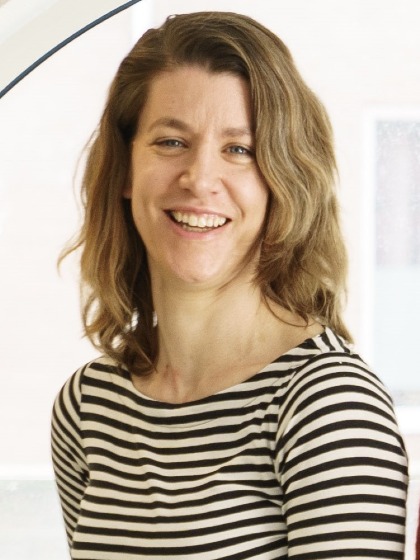dr. K.E. (Karen) Hollewand

Research interests
My research can be divided into roughly four topics:
1. The (early modern) history of sexuality, gender and the body. This line of research combines cultural history and the history of science and knowledge with medical humanities and cultural heritage (see point 2 below). This line of argument motivates my work on the historical development of perspectives on the female body, which are heavily dependent on the conglomeration of medical and cultural attitudes and play a crucial role in the formation of women's identities. I am looking into the connection between sexual science, knowledge and education, looking for example at the University of Groningen’s medical collections.
Together with Tim Huijgen, Deniz Haydar, and Rina Knoeff, I developed the interdisciplinary project Geschiedenis is Gezond: het bevorderen van veerkracht en gezondheid van scholieren door medisch historisch onderwijs. We established a network of secondary education history/biology teachers, teacher educators, and medical historians to increase the well-being of students. Using health/cultural heritage, from prints to instruments, we introduced a neglected side of history into the classroom.
I am also passionate at making this history relevant to non-academic audiences, for instance appearing on the radio (discussing the female orgasm on Onvoltooid Verleden Tijd and menstruation on Radio Swammerdam), writing popular articles (see my articles on human remains and the clitoris in Wonderkamer), and speaking at events (like De Pilrevolutie and Studium Generale).
2. Cultural heritage, in particular pertaining to medical heritage and anatomical collections. Currently, I am studying the University of Groningen’s medical collections, which include a unique historical collection of obstetrical instruments and anatomical preparations. I am analyzing these collections in order to better understand the history of the female body and to study the sensitivities and ethics of showing these collections in public, and, in doing so contributing to the field of health humanities from the perspective of material collections.
I am part of the Heritage Past and Futures group, part of the sector plan theme Cultural Heritage and Identity: Material and Intangible Heritage. We concentrate on the past and future of cultural heritage, which forms an integral part of identity formation, past and present. Our objective is to strengthen existing and shape new directions in the area of cultural heritage and identity, thereby connecting to historical changes, contemporary societal debates, technological developments, critical reflection, and ethics.
In the past, I have developed programs that explored Europe’s cultural heritage at Chain (Cultural Heritage Activities and Institutes Network, part of Erasmus+) and closely engaged with cultural heritage in the form of historic print and script (early modern books, manuscripts, and artwork in the form of letters, notebooks, scientific studies, pamphlets, prints, and portraits) during my PhD. Afterwards, I worked on finding, transcribing, digitizing early modern letters win my work for Early Modern Letters Online, part of the Oxford-based Cultures of Knowledge Project. My research for COST Action IS1310-Reassembling the Republic of Letters, and the ERC-funded Skillnet project (Sharing Knowledge in Learned and Literary Networks), concentrated on dealing with (in)tangible cultural, intellectual heritage.
3. The scholarship and banishment of Hadriaan Beverland (1650-1716), who was exiled from the provinces of Holland and Zeeland by the University of Leiden in 1679. From 2012 until 2017 I completed my DPhil thesis at the University of Oxford under the supervision of Howard Hotson and Faramerz Dabhoiwala (titled The banishment of Beverland: sex, scripture, and scholarship in the seventeenth-century Dutch Republic), resulting in two monographs on Beverland and his radical studies.
I authored The Banishment of Beverland: Sex, Scripture, and Scholarship in the seventeenth-century Dutch Republic (2019) and Hadriaan Beverland’s De Peccato Originali (On Original Sin, 1679): an annotated edition and translation with Floris Verhaart (2023). My articles have appeared in Journal for Eighteenth-Century Studies, Jaarboek voor Nederlandse Boekgeschiedenis, Jaarboek De Achttiende eeuw, Bibliothèque d’Humanisme et Renaissance and Early Modern Low Countries, among others. I have also contributed chapters to books published by Amsterdam University Press, Oxford University Press, and Brill.
4. Isabella de Moerloose (1660-after 1712), the author of Vrede tractaet, gegeven van den hemel door vrouwen zaet (Amsterdam, 1695). Together with Lieke van Deinsen and supported by the R.O. van Gennep Fund, part of the Culture Fund, I am writing a popular book on the life and autobiography of this fascinating woman.
